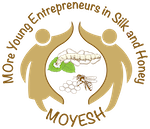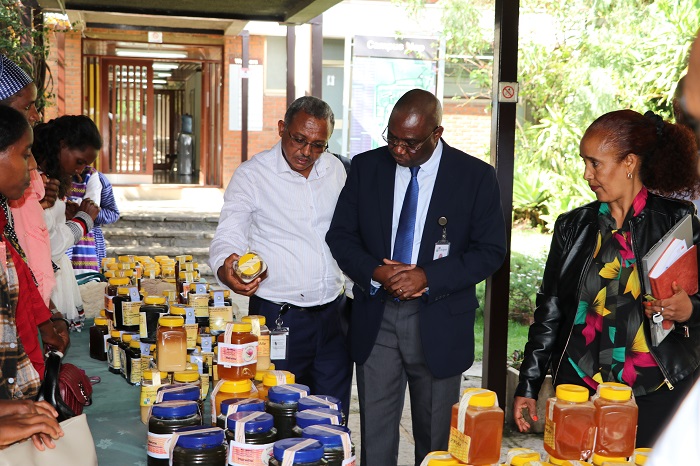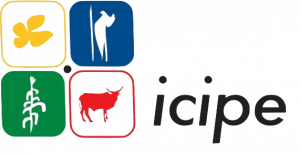icipe Director General holds official visit to Ethiopia
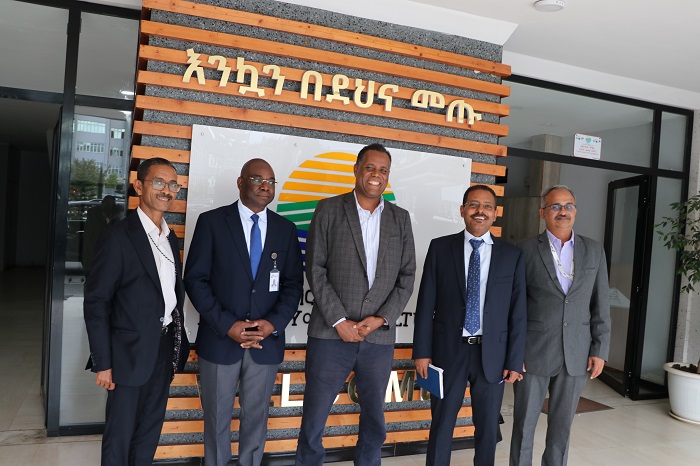
The International Centre of Insect Physiology and Ecology’s (icipe) investments and partnerships in Ethiopia through insect science and innovations have grown rapidly over the past three decades. Beekeeping, sericulture, biological pest and disease management approaches such as push-pull technology and combating fruit fly and tsetse fly infestations are some of the bigger spotlights of our interventions in Ethiopia. In addition, the mass production of Black Soldier Fly is a new initiative introduced by icipe and partners that has started drawing the public’s attention. It helps create jobs for young people, entrepreneurs, and farmers by improving animal feed, such as chicken, fish, pig and organic fertilizer. This defines the positive prospects of the country, and thus the visit of the Director General held in March is to embrace the opportunity of a long-lived partnership with the development partners, farmers, public-private partners, youth, and women groups.
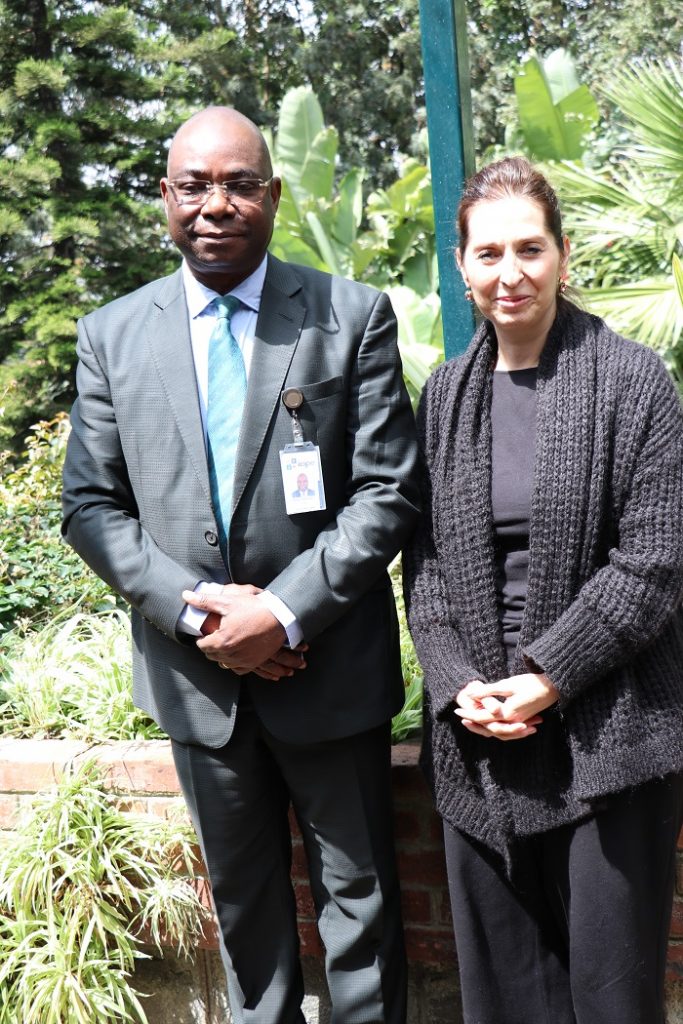
Pictured (l-r): icipe Director General and H.E. Tamara Mona, Swiss Ambassador to Ethiopia and South Sudan.
From March 5–10, 2024, Dr. Abdou Tenkouano made his first visit to Ethiopia in his capacity as Director General of icipe. The Director General met with a range of high-ranking officials, such as policymakers, ambassadors, partners in research and development, representatives of the public and private sectors, farmers, and young entrepreneurs. These include Mr Samuel Yalew, Adela, Country Director, Mastercard Foundation; H.E. Dr. Fikru Regassa, State Minister, Ministry of Agriculture; HE Tamara Mona, Swiss Ambassador to Ethiopia and South Sudan, and Dr. Tidiane Ouattara, Head of Division, Science, Technology, and Space, at the African Union Commission (AUC) in Addis Ababa.
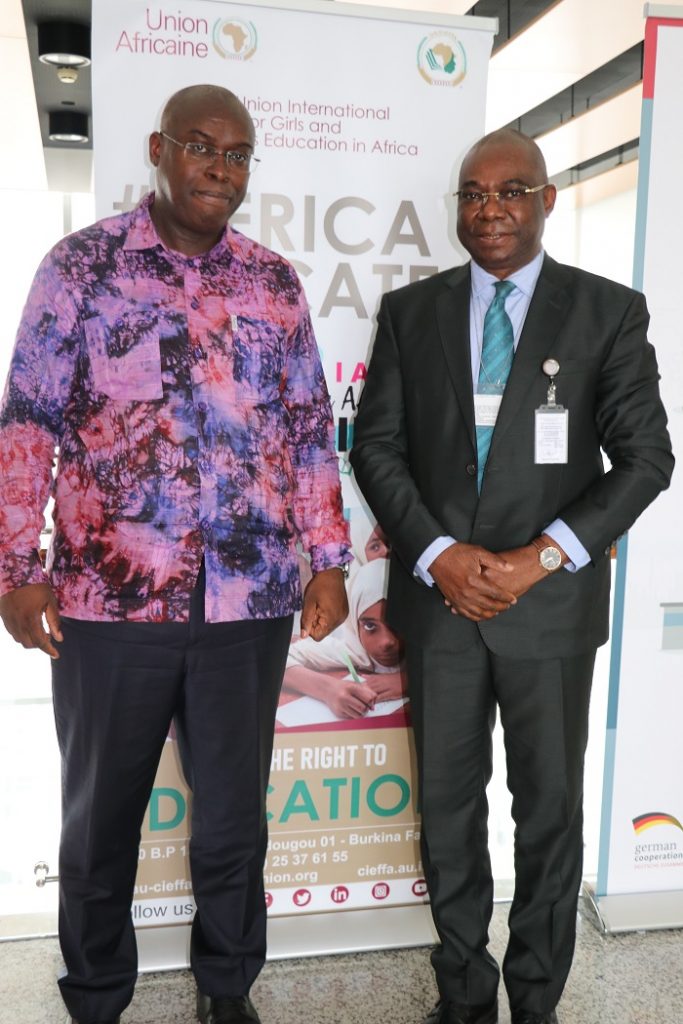
Pictured (l-r): Dr Tidaiane Ouattara, Head of Division, Science, Technology, and Space, the African Union Commission and icipe Director General.
Dr Tenkouano held a background briefing on icipe’s excellence in insect science and discussions with strategic partners on important issues that help to create a better future for young people and smallholder farmers. As he explained the significant achievements, he said, “I am leading an institution that has a deep-rooted legacy of supporting farmers and young men and women, especially in Ethiopia, where we have a strong foundation for providing multiple-faceted insect-based technologies and practices. We wish to continue and expand into other areas using our technology and impacts as the cornerstone for tackling issues related to youth employment and societal transformation.”
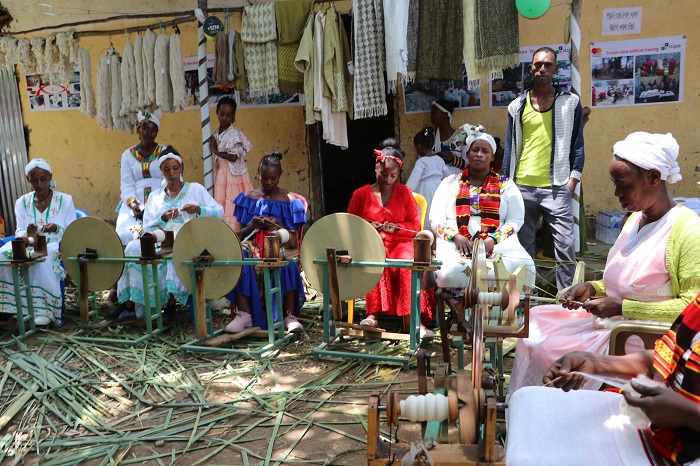
Picture: Demonstration of some of the sericulture activities run by women-only groups at the Ugayehu sericulture village in Mirab Abaya district, Gamo Zone of South Ethiopia Reginal State.
Heading to Arba Minch from Mirab Abaya (380km drive from Addis Ababa) in Gamo Zone of the South Ethiopia Regional State, we will find two of the best storytellers: the legendary women of sericulture, who earned USD 60,750 annually from the sale of Er-silk products and allied business in Ugayehu village; and the organized youth who are vibrant and involved in improved mango nursery and seedling multiplication, who earned USD 52,143 annually from the sale of honey, climate-resilient crops, and multiple-purpose seedlings. These are all direct outcomes of the interventions implemented by icipe, which are emulated in Ethiopia. Dr. Tenkouano went to these places, visited Ethiopia’s greatest icons in Eri-silk production and observed how icipe’s technologies and practices are linked to the rural community. The Director General spoke with farmers and organized youth and women groups about how they are using icipe’s technology and practices to promote agricultural diversification, silkworm farming, beekeeping, and mango production.
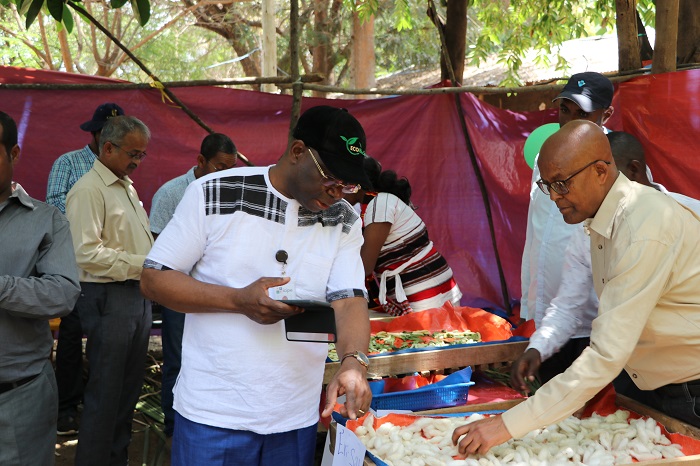
Pictured: Dr Shifa Ballo, with a light-yellow shirt, received the Director General and icipe visiting team at Ugayehu sericulture village in Gamo zone and explains the Eri-silkworm rearing processes and life cycle.
He also went to two establishments in the private sector that engaged in sericulture development in Arba Minch town. Best of all, each visit calls for the best contributions of our insect-based technologies for job creation and social transformation. Especially the beekeeping, sericulture, mass production of Black Soldier Fly, and push-pull technology provisions are promising factors that are coming together to elevate the profile of our contributions in Ethiopia. The Director General concluded by praising the enabling environment and strongly urging continued assistance to young people and farmers. He also offered his sincere compliments to the young people who displayed the vital items as well as the partners who are supporting icipe to expand technologies and create viable income for the young people. Finally, he noted that our partnership with stakeholders is moving up, and now is the time to capitalize on our accomplishments and expand to other areas of the nation and abroad.
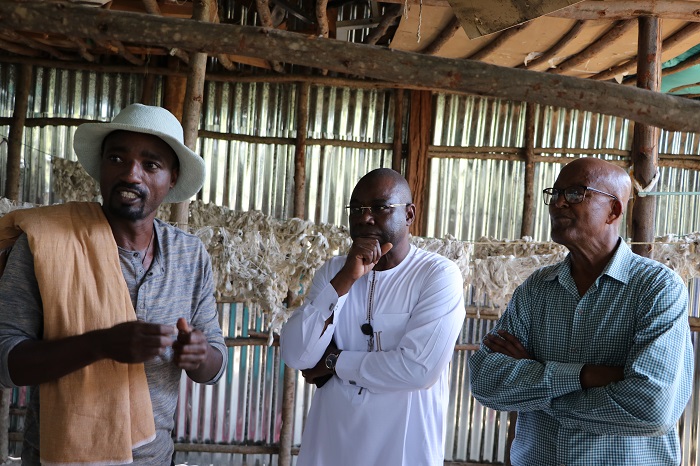
Pictured (l-r): Mr Firew Konjo, the founder of Jano Handicraft Cooperative in Arba Minch with icipe Director General, and Dr Shifa Ballo, sericulture manager.
